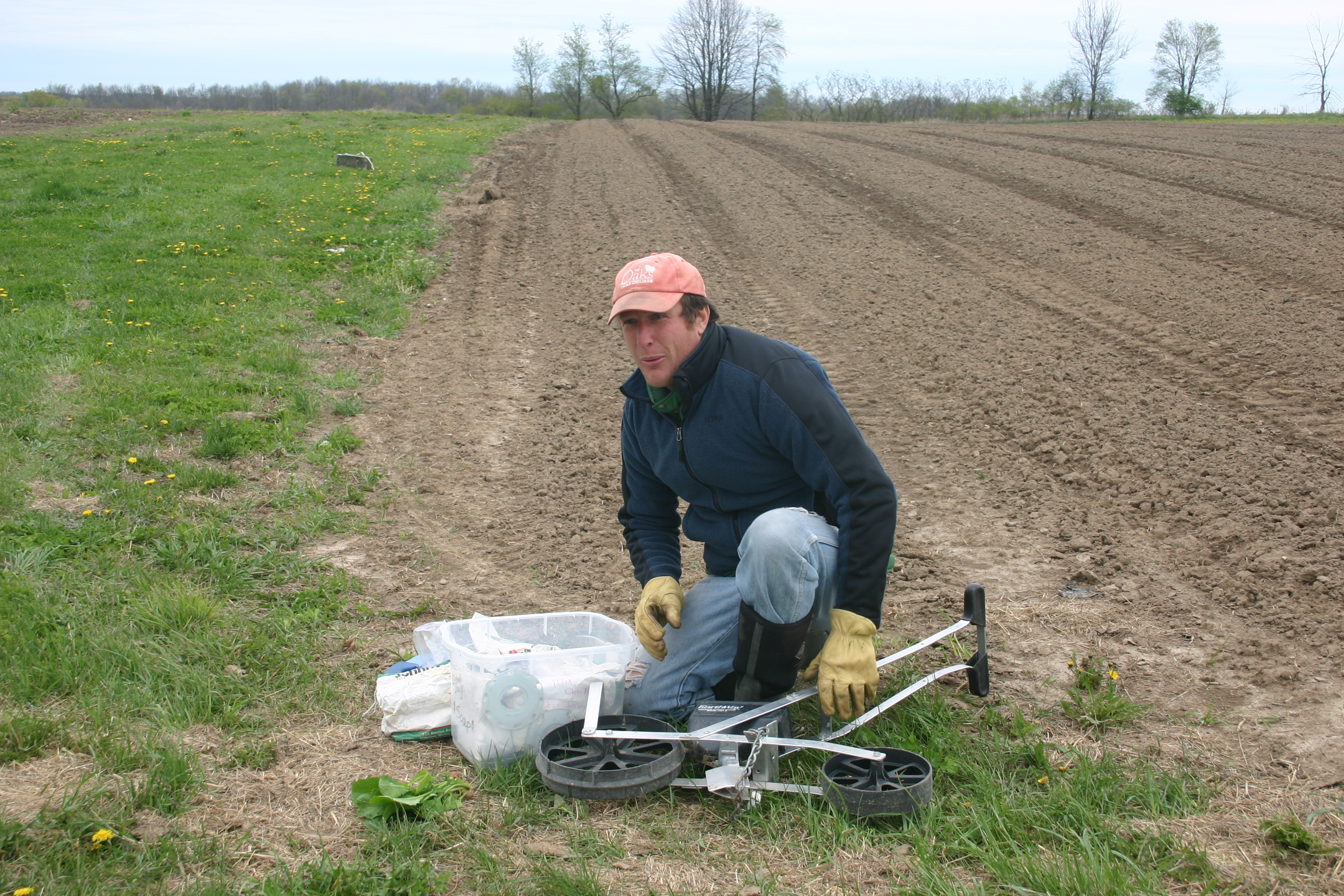
by Cally Ehle, communications coordinator, Wisconsin FSA
On the scenic rolling hills of southwestern part of Wisconsin sits the 200-acre Keewaydin farm. Purchased in 1976 by the Haucke family, the farm has gone through several transformations over the years. Some of those recent changes are thanks to the innovation of Rufus Haucke, second generation owner of Keewaydin Farm.
When Haucke’s parents purchased the farm, cows grazed on the rolling hills. Now those acres are home to organic produce that makes its way to markets in Minneapolis to Milwaukee and all locations in between. Currently the farm produces 20 acres of organic vegetables with five acres dedicated to a 100-member Consumer Supported Agriculture program and the other 15 acres to wholesale markets. Haucke is also setting up six hoop houses to accommodate additional produce for the 2012 season and has established a group of 60 local farmers to meet the demand for fresh organic produce to wholesalers through Keewaydin Organics LLC.
Even though Haucke grew up in agriculture, he didn’t have an interest in the farm or even a future in agriculture when he graduated from high school.
“After a year of college, I decided to take a year off and left for Colorado to become a ski bum,” said Haucke. Eight years later he rediscovered the farm and fell in love with agriculture all over again.
Haucke made his way back to Wisconsin and took a job with a commercial vegetable farm. “It was a great learning experience that established relationships and gave me the knowledge to pursue my own produce operation,” he said.
Familiar with the Farm Service Agency through his parents’ participation in various programs, Haucke visited his county office and obtained a farm ownership loan that helped him purchase 60 acres from his parents.
“There was a lot of education about cash flow production of a produce operation,” said Haucke. “The application process does take some time, but starting a business takes a lot of passion and stamina and the effort that goes into the loan process gives you that start in understanding what it means to run a business.”
After purchasing the 60 acres, he used a quarter acre to grow vegetables. The other 55 acres were used to grow alfalfa. As business picked up, he expanded produce production to five acres.
With another FSA loan, he purchased an additional 80 acres of his parents’ farm, along with equipment and dairy cattle to add a dairy component to the farm. He soon realized that produce was his true passion and sold the dairy cows and expanded produce production from five to 20 acre.
“People like Rufus Haucke are the reason why we do what we do. He represents the mission of Farm Service Agency,” said Joe Reuter, farm loan officer who worked with Haucke to obtain the FSA loans and helped him graduate from the FSA loan program to commercial lenders.
“It’s really exciting to be able to walk into someplace with an idea and have people willing to support that idea and the programs that are there to help support it,” said Haucke.
Recently, Haucke expanded Keewaydin Organics LLC, by renting 15,000 square feet in the new Vernon County Food Enterprise Center in Viroqua, Wis. The space is still under construction and will include a 2,000 square food processing kitchen and 1,000 square feet of office space, with the remaining space dedicated to warehouse space and coolers.
With this location, Haucke expects to process the 40-50 percent of produce that is left in his fields due to cosmetic blemishes that make it difficult to sell to wholesalers. He also plans to expand from the current 60 farmers to 100 farmers who provide produce to Wisconsin wholesalers.
“I will be able to expand my customer base to include schools and other businesses interested in using fresh, locally grown produce,” said Haucke. “I also plan to include a drying and canning capacity in the facility to further expand sales.”
Within the next few years, Haucke said he wants to increase production to 30 acres with perennial crops grown in the steeper areas of the farm. His goal is to develop the business further to improve the cash flow of the business from seasonal to year round.





